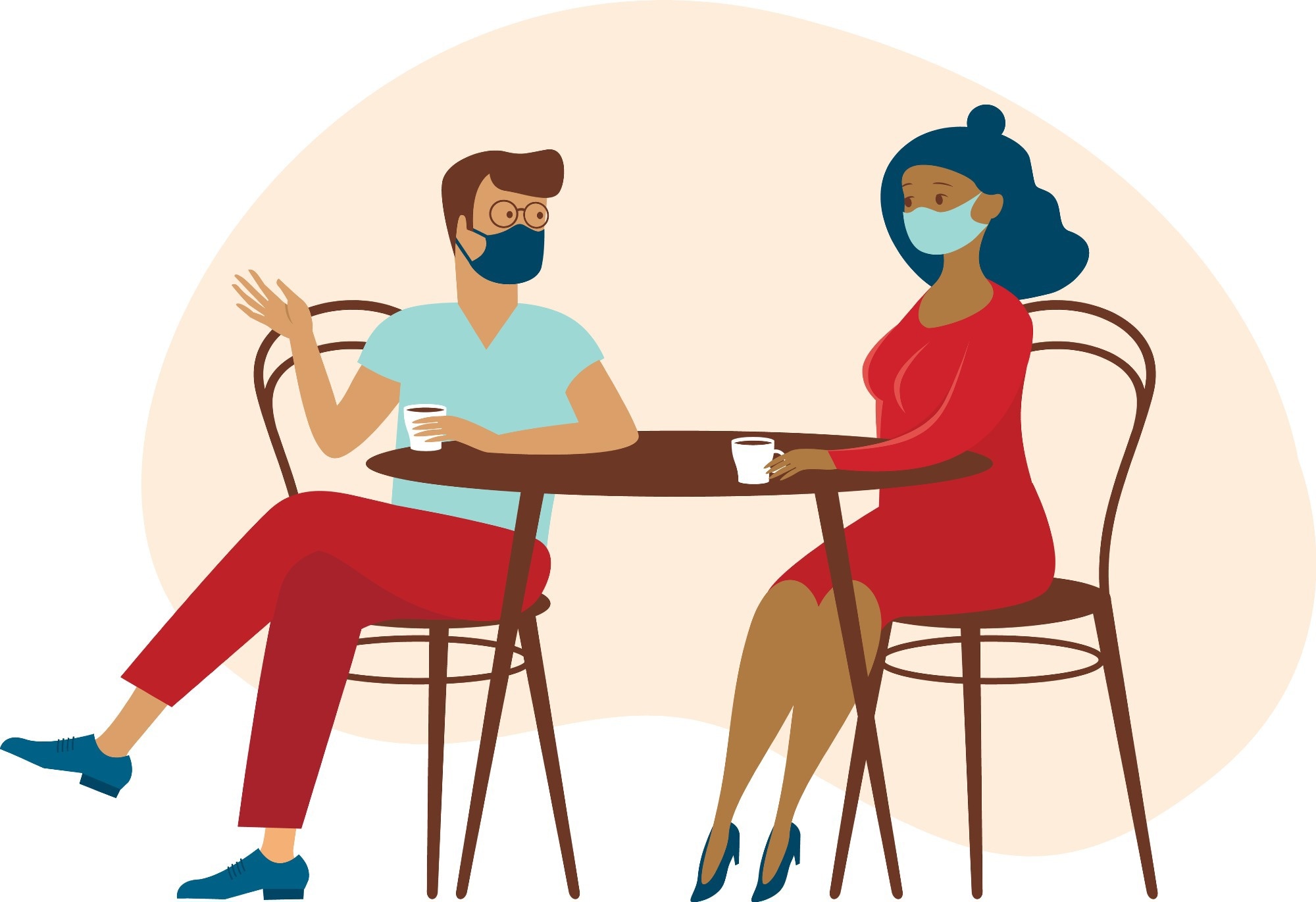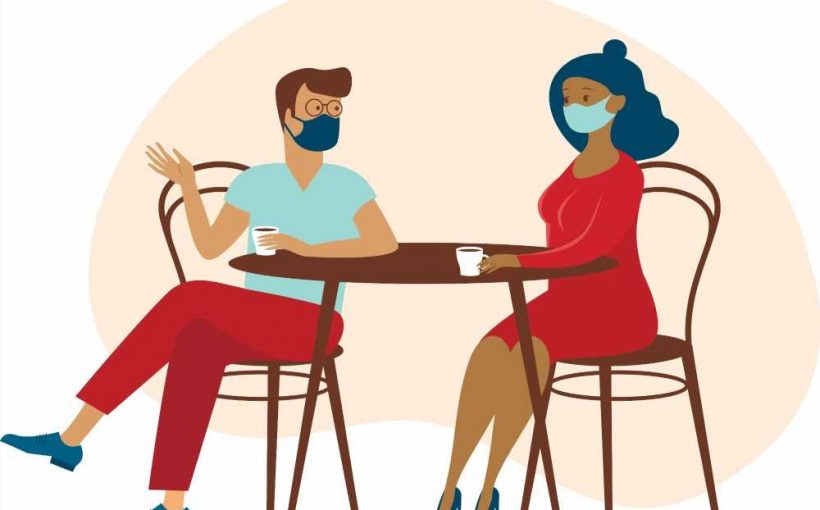In a recent study published in the Sexual Medicine Reviews journal, researchers conducted a scoping review on sexual well-being during the severe acute respiratory syndrome coronavirus 2 (SARS-CoV-2) pandemic.

Background
SARS-CoV-2 was discovered initially in December 2019 in China. Appallingly, the virus spread quickly to the rest of the world. On 11 March 2020, the World Health Organization (WHO) proclaimed coronavirus disease 2019 (COVID-19), the SARS-CoV-2-associated respiratory illness, a pandemic. Most nations adopted extraordinary preventative measures in response to the COVID-19 pandemic to lessen community transmission, protect public health establishments, and maintain essential societal activities.
The social interactions and general well-being of the global population were influenced significantly by the SARS-CoV-2 pandemic. Furthermore, internationally applied COVID-19 preventive interventions had the potential to have an impact on all aspects of sexual health.
About the study
The current scoping review sought to consolidate available studies examining the potential impacts of lockdowns connected to SARS-CoV-2 infection on sexual health among adults, i.e., sexual behavior, sexual satisfaction, and sexual functioning. Additionally, the team reviewed research on how sexual well-being and mental health interacted during the COVID-19 pandemic.
The researchers performed the review following the Joanna Briggs Institute and the Extension for Scoping Reviews (PRISMA-ScR) checklist guidelines. From 11 to 12 October 2021, they systematically searched Embase, PubMed, PsycInfo, Cochrane, Cinahl, Scopus, and Sociological Abstracts for pertinent peer-reviewed articles utilizing the quantitative approach. In particular, the review was centered on peer-reviewed quantitative English articles with adult sample sizes published before 12 October 2021.
In addition, the scientists retrieved unpublished, i.e., grey, research works on the topic. Besides, four independent reviewers performed the analysis, data extraction, and evidence screening utilizing an iterative process.
Results
The team found 107 studies that showed multifaceted and complex tendencies and some overarching patterns. The current scoping review revealed that the SARS-CoV-2 pandemic significantly influenced all facets of sexual health based on these 107 included articles. Except for lone sex behaviors, mostly negative COVID-19 ramifications were identified, but overall, findings were complex and unpredictable among all population segments.
Concerning sexual behaviors, the investigations demonstrated a strong tendency for a drop in partnered sexual practices, particularly for individuals who are not sharing a home or in a committed partnership. In contrast, studies revealed a rise in solitary sexual behaviors like masturbation and the use of pornography; some research even suggested a propensity to try out novel sexual behaviors.
During the COVID-19 pandemic, pornography use was a widely practiced sexual activity globally. Some studies also revealed a substantial rise in porn usage, particularly among men or younger people. These findings were in line with earlier studies that show a hike in pornographic desire following the COVID-19 lockdown.
Despite inconsistent results concerning digital sex practices like online dating and sexting, the general trend indicated a comparatively small or even declining engagement in these behaviors. Additionally, research repeatedly demonstrated a general decline in casual sex activities and sexual risk behaviors. Contrarily, few analyses discovered a high or even rising prevalence of unsafe sex, mostly among men who have sex with other men (MSM).
The included studies showed that while some participants' sexual functioning improved or declined, about 50% of the subjects experienced no changes. The review concluded that diverse contextual and sociodemographic factors attenuated sexual behavior, functioning, and satisfaction during the SARS-CoV-2 pandemic. Finally, there was a strong correlation between sexual health and general mental health.
The literature called attention to various populations more vulnerable to sexual hardships amid societal lockdowns. Further, it indicated that COVID-19 limitations had a more detrimental effect on women's total sexual function than men's. Remarkably, few studies suggested that consistent relationships, intimacy, and sexual acts may be protective during a severe health crisis like this.
Conclusions
The present scoping review illustrated a broad set of SARS-CoV-2-associated impacts on sexual well-being, such as a general drop in coupled sex and a parallel rise in solitary sexual behaviors. It also highlighted the need for further investigation into the potential long-term effects of the COVID-19 pandemic on different population cohorts and all facets of sexual health. The team also strongly advised repeated reviews of the newly published material in this area.
In addition, the authors pointed out that almost all of the chosen studies only used a cross-sectional, observational questionnaire method to look into different dimensions of sexuality during SARS-CoV-2 lockdowns. Hence, there was no way to distinguish between distinct contributing factors or identify the precise causal pathways underlying variations in sexual health. Besides, the investigators mentioned that they employed the scoping review approach since it offers a more thorough overview versus a systematic review.
- Nana Ernst Toldam, Christian Graugaard, Rikke Meyer, Louise Thomsen, Sabine Dreier, Emmanuele A. Jannini, Annamaria Giraldi. (2022). Sexual Health During COVID-19: A Scoping Review. Sexual Medicine Reviews. doi: https://doi.org/10.1016/j.sxmr.2022.06.005 https://www.sciencedirect.com/science/article/pii/S2050052122000567?via%3Dihub
Posted in: Medical Science News | Medical Research News | Disease/Infection News
Tags: Coronavirus, Coronavirus Disease COVID-19, covid-19, Medicine, Mental Health, Pandemic, Public Health, Research, Respiratory, Respiratory Illness, SARS, SARS-CoV-2, Severe Acute Respiratory, Severe Acute Respiratory Syndrome, Sexual Health, Syndrome, Virus

Written by
Shanet Susan Alex
Shanet Susan Alex, a medical writer, based in Kerala, India, is a Doctor of Pharmacy graduate from Kerala University of Health Sciences. Her academic background is in clinical pharmacy and research, and she is passionate about medical writing. Shanet has published papers in the International Journal of Medical Science and Current Research (IJMSCR), the International Journal of Pharmacy (IJP), and the International Journal of Medical Science and Applied Research (IJMSAR). Apart from work, she enjoys listening to music and watching movies.
Source: Read Full Article
